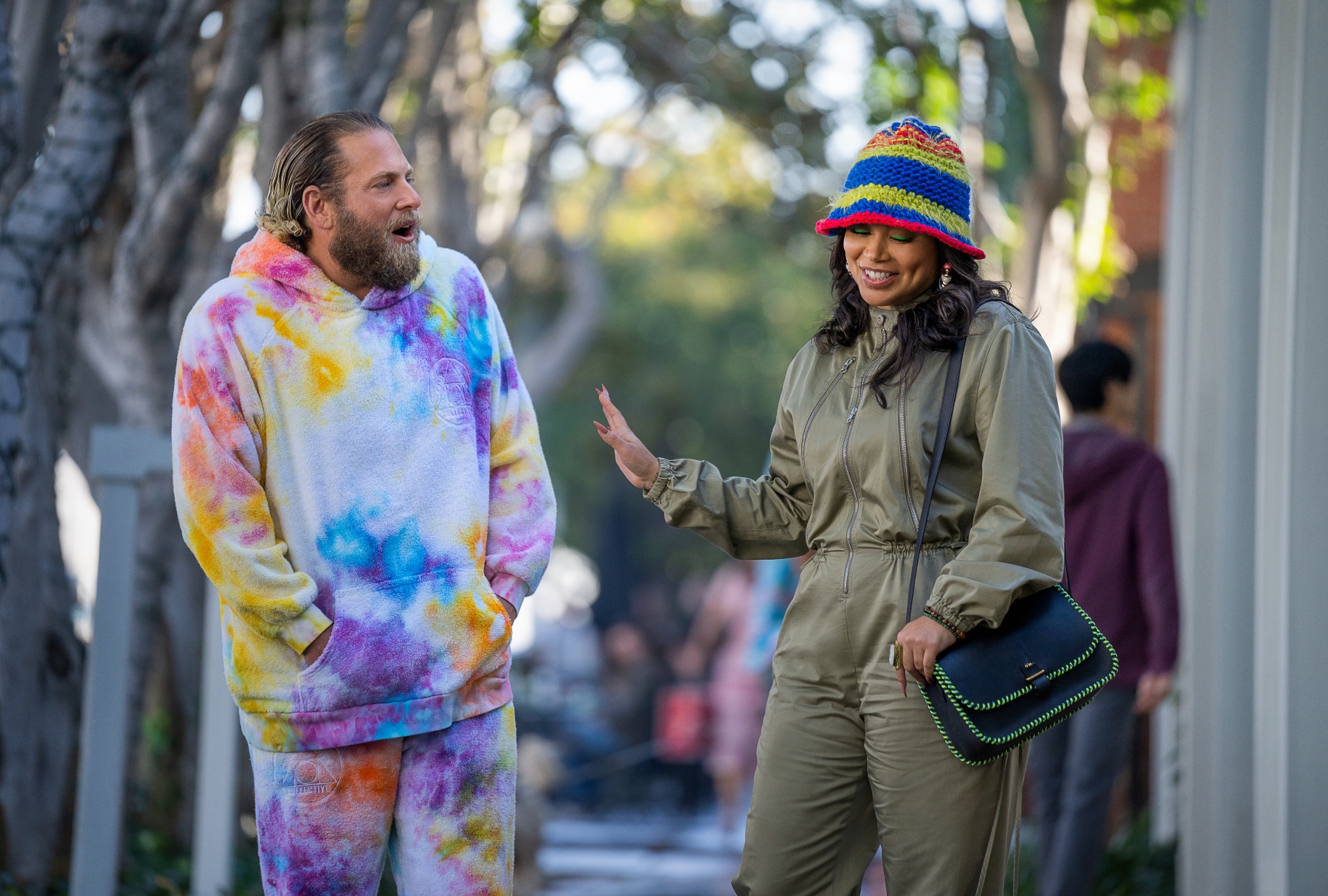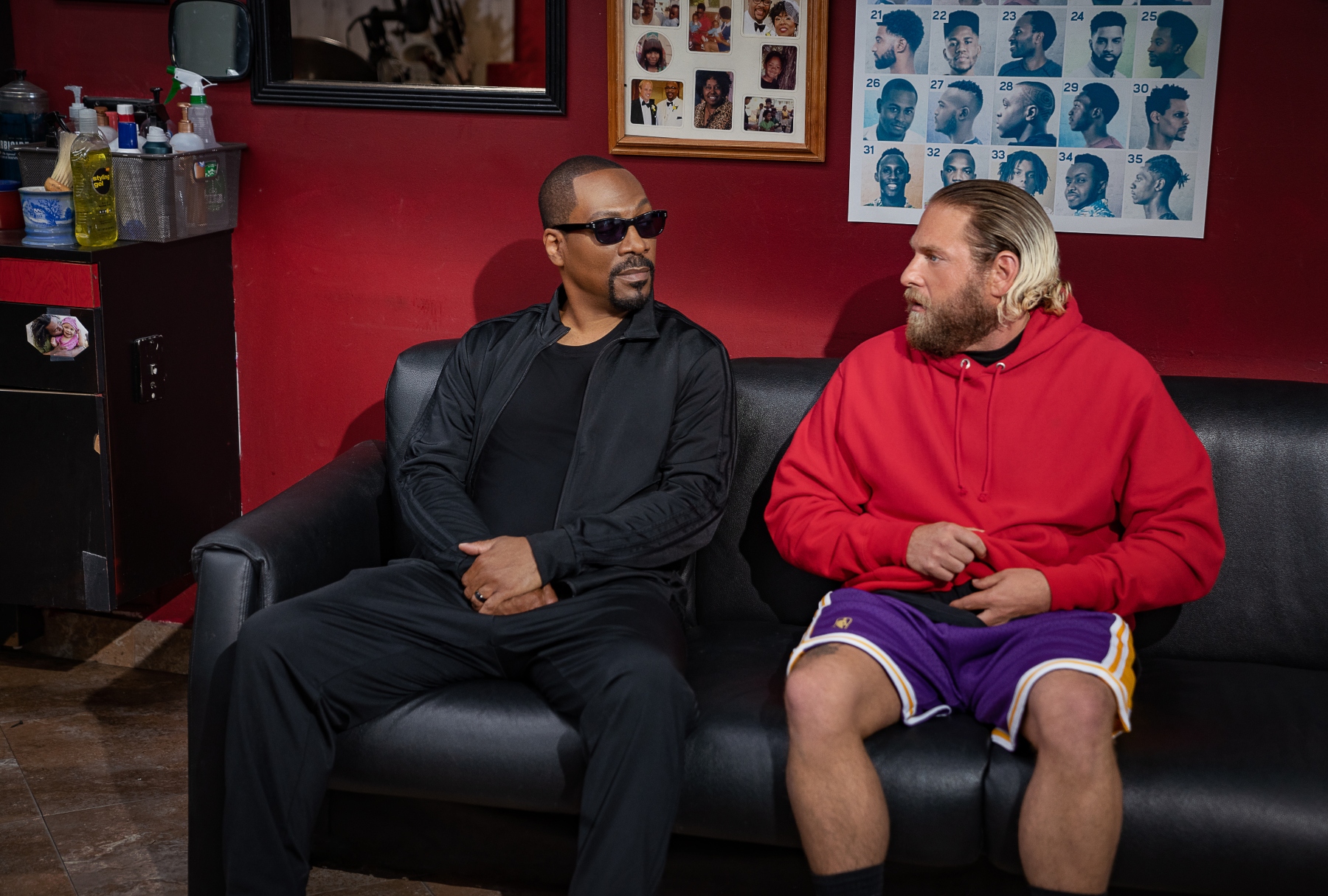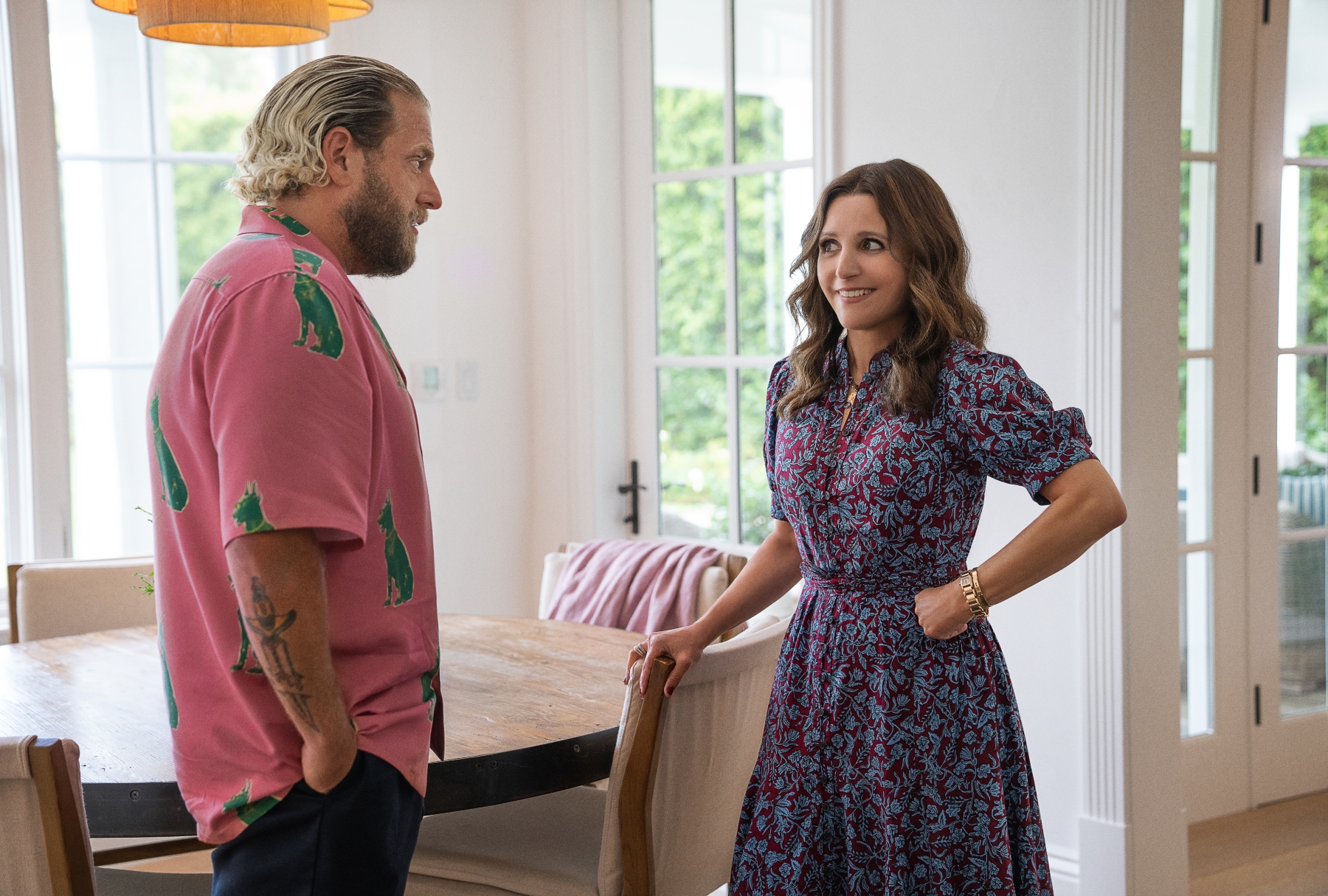Watching Netflix’s “You People” exhumed a mostly forgotten memory of a conversation inflicted on me before I got married, courtesy of a girlfriend of mine. My engagement status is pertinent here because it inspired her to ask me, out of nowhere, if I was sure that I should marry my fiancé.
This person’s concern had nothing to do with any of the reasons I said yes to my eventual spouse such as his loyalty, his kindness, his sense of humor, his intellect, and his usefulness – never underappreciate a partner who can wield a hammer! No, it was solely about his whiteness.
“Do you really believe you have enough in common?” she asked me, but her tone betrayed a different meaning. She wasn’t questioning my belief as much as voicing her doubt that a marriage between a white man and a Black woman could work, let alone be happy. My ultimate answer is the nearly three decades of partnership we’re still enjoying, which she’s long since accepted.
But that night, she was not convinced. Looking back, I get it: her exposure to interracial couples came by way of TV shows and movies portraying them as taboo, destructive, or doomed, and the people who dare such romances as naïve and unable to consider the broader consequences.
This conversation long pre-dated the interracial family in those Cheerios commercials and all the other culturally blended spokes-couples that followed. Way back then, when popular culture explored Black people and white people falling in love, it was through stories where such pairings ripped families and communities asunder.
Here are the stories that likely played some part in informing my friend’s concern: In Spike Lee’s 1991 movie “Jungle Fever,” Wesley Snipes’ lawyer’s affair with his secretary, played by Annabella Sciorra, ruined their relationships with both their families. Or there was 1992’s “Zebrahead,” where Michael Rapaport’s daring to fall in love with a young woman played by N’Bushe Wright tangentially led to one of her friends being shot dead.
The common thread in all of these plots is the usage of interracial couples as tools to explore America’s fears surrounding race, not as distinct people or unique romances.
A few years later, “ER” star Eriq LaSalle would demand that his surgeon Peter Benton end his budding romance with Alex Kingston’s Dr. Elizabeth Corday, voicing his discomfort with the writers depicting it as stable after showing Benton’s previous relationships with Black women as having failed.
Given the circumstances, LaSalle’s request was understandable. He was one of few Black actors featured in a leading role on a primetime drama written with extensive interiority, and his character’s love life had been tumultuous.
“In real life, we romance and get on each other’s nerves and laugh and do all the things that any other race of people do,” he told Hello! Magazine in 1999, when the storyline was scrapped. “So if the only time you show a balanced relationship is in an interracial relationship, whether it’s conscious or subconscious, it sends a message I’m not comfortable with.”
The common thread in all of these plots is the usage of interracial couples as tools to explore America’s bugaboos surrounding race, not as distinct people or unique unions. When such onscreen couples were rare and few people of color were in positions to provide input in their creation, forgiving those predominantly white writing rooms for cooking up hackneyed plots to goose ratings or endeavor to explore race relations was easier.
 Jonah Hill as Ezra and Lauren London as Amira in “You People” (Parrish Lewis/Netflix)
Jonah Hill as Ezra and Lauren London as Amira in “You People” (Parrish Lewis/Netflix)
That was then. Now, there are enough thoughtful screen examinations of racial politics along with normalized visions of inclusive casting to make “You People” stand out as a gormless throwback. Also, people like Kenya Barris, who landed a $100 million deal at Netflix in 2018 only to walk away from it in 2021, have the power and should have enough awareness to do better.
Stanley Kramer’s 1967 classic “Guess Who’s Coming to Dinner” is a significant influence in this movie’s plot, apparent in the central importance that Barris and his “You People” co-writer and star Jonah Hill assign to a disastrous gathering of the core couple’s parents.
By that point, Hill’s Ezra Cohen has introduced his fiancée Amira Mohammed (Lauren London) to his Jewish parents Shelley (Julia Louis-Dreyfus) and Arnold (David Duchovny), who almost immediately turn their getting-to-know-you hang into a conversational La Brea tarpit.
“OK, I’m just going to put this out to the group and see how it lands,” Shelley blurts out, apropos of nothing. “I think the police are, and always have been, by the way, f**ked up towards Black people, and I for one hate it!” Ezra calls her off, only for Arnold to share his heretofore unmentioned love and respect for hip-hop star Xzibit.
Ezra follows that disaster feature by meeting Amira’s parents Akbar (Eddie Murphy) and Fatima (Nia Long) at a Roscoe’s Chicken and Waffles spot near their Baldwin Hills home. There, he flubs his way through asking them for Amira’s hand by pointing out that both Jesus and Malcolm X were biracial. Thus we are not surprised when the first gathering around the couple’s table ends with a Jewish mother and son accidentally setting his Muslim prospective father-in-law’s kufi on fire.
 Eddie Murphy as Akbar and Jonah Hill as Ezra in “You People” (Parrish Lewis/Netflix)
Eddie Murphy as Akbar and Jonah Hill as Ezra in “You People” (Parrish Lewis/Netflix)
The lead-up to this features Fatima and Akbar engaging Shelley and Arnold in an oppression Olympics matchup pitting slavery against the Holocaust, and Amira’s parents antagonizing Ezra’s by bringing up their high esteem for the Nation of Islam leader and renowned antisemite Louis Farrakhan. You know, just to make conversation.
Maybe the problem is that “You People” is working off a terrible model. “Guess Who’s Coming to Dinner” – which also inspired 2005’s lazy “Guess Who?” starring Zoe Saldana and Ashton Kutcher – is mainly viewed as a classic because it starred Sidney Poitier, Katharine Hepburn and Spencer Tracy, and because the subject was considered groundbreaking. In 1967.
By then Poitier had been anointed as Hollywood’s Ideal Black man (props to “Something New” for that one) by becoming the first Black actor to win an Oscar for Best Actor in 1964.
Maybe the problem is that “You People” is working off a terrible model.
Six months before its theatrical release, interracial marriage was still illegal in 17 states. Yet here was the story of an impeccably credentialed, world-renowned, honorable Black doctor asking for the hand of a white woman more than a decade younger than him.
Both Poitier and his character are men to whom no reasonable white parent could object for any reason other than their Blackness – certainly not Tracy’s “lifelong fighting liberal who loathes race prejudice and has spent his whole life fighting against discrimination,” as his character’s daughter describes him. Blackness is that movie’s uncredited star, centered to the point that Poitier’s utter lack of chemistry with his co-star Katharine Houghton didn’t matter.
Want a daily wrap-up of all the news and commentary Salon has to offer? Subscribe to our morning newsletter, Crash Course.
That also makes Kramer’s classic terminally maudlin, which is what happens when a movie revolves around a message as opposed to making us believe in human relationships and emotions.
“You People” somewhat flips that script by placing Ezra’s status as a tourist of Black culture at the core of his inability to win over Amira’s parents and, eventually, to make his relationship with her work. So if asking “You People” to do the bare minimum by giving Amira and Ezra a reason to exist other than being a locus of conflict, consider what that says about our increasingly multicultural society.
 Jonah Hill as Ezra and Julia Louis-Dreyfus as Shelley in “You People” (arrish Lewis/Netflix)
Jonah Hill as Ezra and Julia Louis-Dreyfus as Shelley in “You People” (arrish Lewis/Netflix)
Its boosters may point to the way it shows love winning in the end, but it’s a hollow and hurried victory partly achieved by Ezra admitting on his suddenly popular podcast that Black people and white people can never get along. Akbar and Shelley hear this separately and see the error in their ways, mending their children’s relationship with all the delicacy of closing an open heart surgery incision with an industrial stapler. Ezra and Amira may get married, but this movie spends a lot of time letting us know they shouldn’t work.
If “You People” attempted to live up to the romance half of its rom-com billing, that outcome may have been halfway palatable. But Hill and Barris barely bother to develop Amira and Ezra’s relationship or explore Amira’s personality at all. There’s no need, since their coupledom is simply a detonator for the bombs Hill and Barris designed to go off in their families.
Our society’s fraught relationship with other cultures and non-white people requires folks in interracial relationships to contend with irritations and trials other couples don’t. That much is true. But generally speaking, we’re as boring as everyone else, cemented together by passions that have nothing to do with how other people feel. It would be wonderful to have a romantic comedy that affirms that in an emotionally intelligent, universally appealing way. Unfortunately, “You People” isn’t it.

